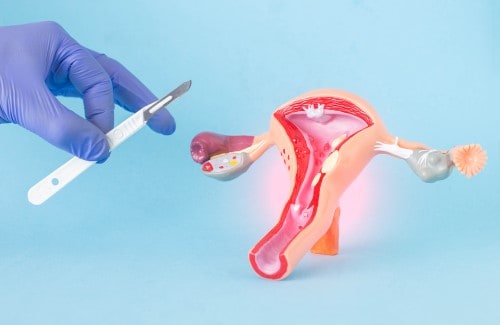Best Urogynecologist in Indore
Uro-gynecology: What is it?
A urogynecologist is a doctor who specializes in the identification and management of conditions affecting the female urinary system and pelvic floor. This covers issues including pelvic discomfort, prolapsed pelvic organs, and urine incontinence. Urogynecologists have a specialist understanding of the female reproductive system and urinary tract and have received training in obstetrics gynecology and urology.
A branch of gynecology called urogynecology focuses on diagnosing and treating female urine and pelvic floor diseases. A wide variety of diseases, such as urine incontinence, pelvic organ prolapse, and voiding dysfunction, can be diagnosed and treated by uro-gynecologists.

Ailments handled by Uro-gynecology:
Urinary incontinence
Urinary incontinence is the unintentional leaking of pee, which can happen when you cough, sneeze, or exercise. Numerous things, including as pregnancy, childbirth, obesity, and menopause, can contribute to it. Uro-gynecologists can assess the degree of incontinence and suggest several forms of treatment, including pelvic muscle exercises, drugs, and surgery.
Pelvic organ
Pelvic organ prolapse is a condition in which the pelvic floor muscles are weak, causing the pelvic organs (such as the uterus, bladder, or rectum) to protrude or bulge into the vagina. It may result in symptoms like pressure, discomfort, and bowel or urine issues. The recommended course of treatment by uro-gynecologists may include pelvic muscle exercises, pessaries, or surgery.
Voiding dysfunction
Voiding dysfunction is the medical term for issues with urinating, such as frequent urination or trouble starting or stopping the flow of pee. Numerous conditions, such as an enlarged prostate, a bladder infection, or neurological diseases, might contribute to it. The underlying reason of voiding dysfunction can be determined by uro-gynecologists, who can also suggest possible treatments like medication or surgery.
Diagnostic uro-gynecological procedures:
A range of diagnostic procedures may be used by uro-gynecologists to assess urine and pelvic floor diseases.
These may Include:
Urodynamic Testing: Urodynamic testing measures the pressure and flow of the urine as the subject urinates in order to assess bladder function.
Cystoscopy: Cystoscopy: To view the bladder’s interior, a thin, flexible tube with a camera is inserted into the bladder through the urethra.
Pelvic ultrasound: Using sound waves to create an image of the pelvic organs, a pelvic ultrasound can be used to assess the size, shape, and function of the organs.
Anorectal manometry: Anorectal manometry measures the tension and activity of the muscles in the anus and rectum to assess bowel function.
Options for uro-gynecological treatment:
Depending on the individual illness and the intensity of the symptoms, uro-gynecologists might suggest a range of therapeutic approaches for urinary and pelvic floor issues.
These may Include:
Exercising the pelvic muscles
These pelvic floor exercises, also referred to as Kegels, entail contracting and relaxing the muscles in order to strengthen them and enhance function.
Medication:
Drugs may be prescribed by uro-gynecologists to address ailments like incontinence or voiding dysfunction.
Procedures that are minimally invasive
These could involve techniques like radiofrequency ablation for hyperactive bladders or the injection of bulking agents for incontinence.
Surgery:
Uro-gynecologists occasionally advise surgery to alleviate issues like prolapse or incontinence. Open surgery and laparoscopic surgery are just two of the numerous surgical methods.
Conclusion
In the specialised subject of uro-gynecology, female urinary and pelvic floor diseases are diagnosed and treated. In order to treat issues including incontinence, prolapse, and voiding dysfunction, uro-gynecologists employ a range of diagnostic procedures and therapeutic approaches. If you are displaying signs of a pelvic or urogenital disease contact us.
